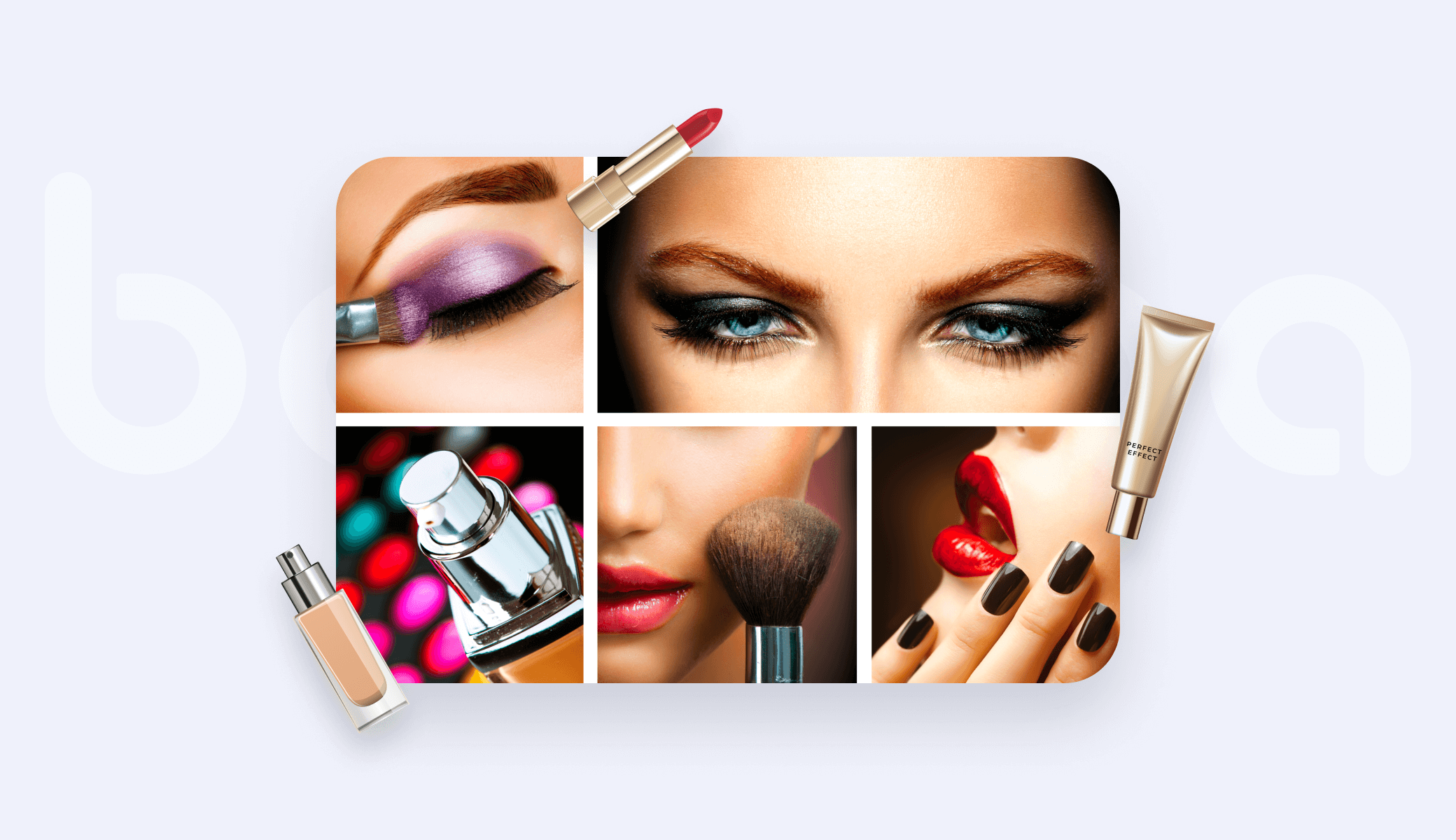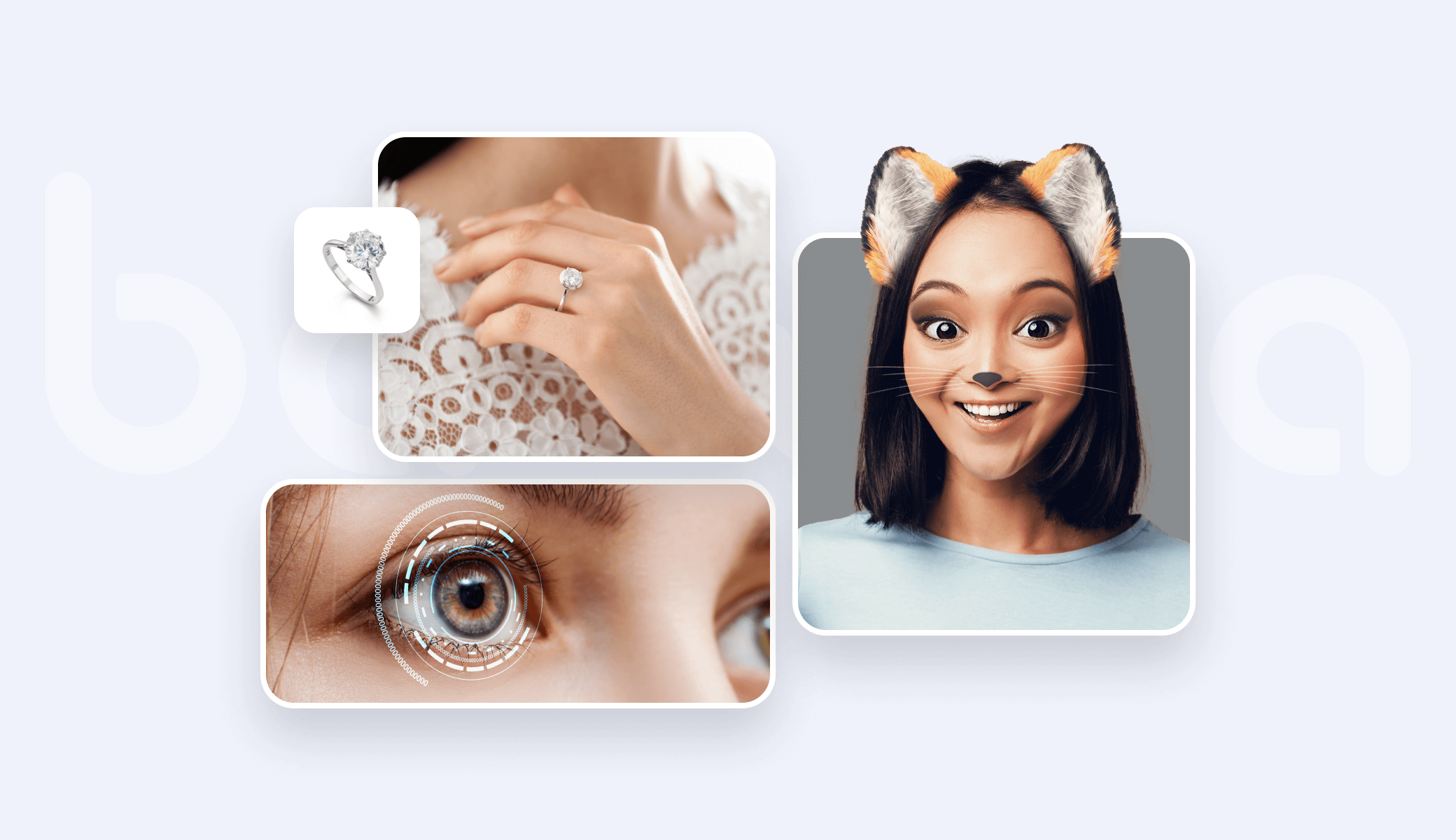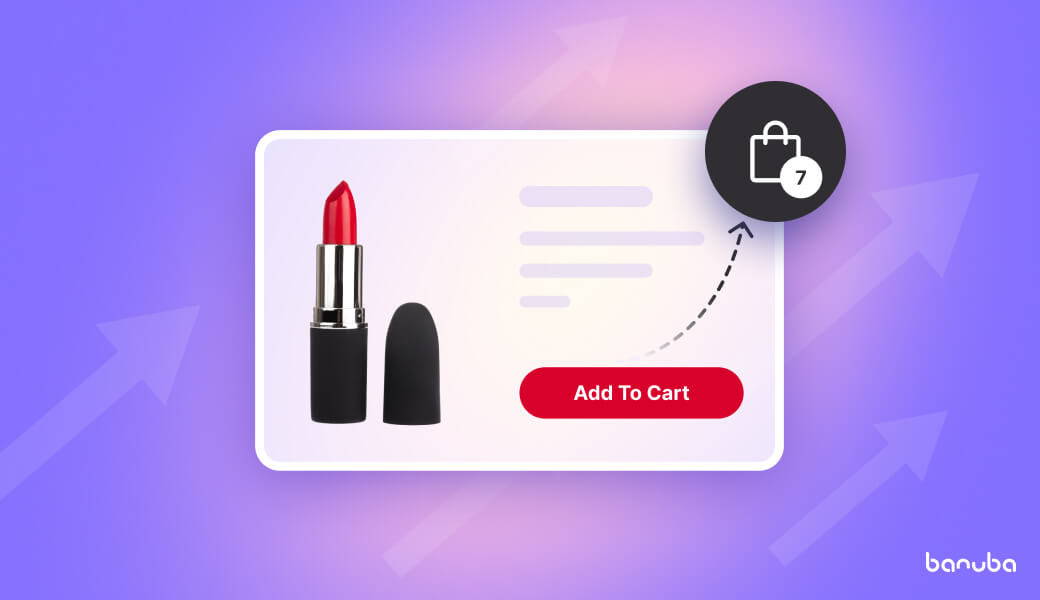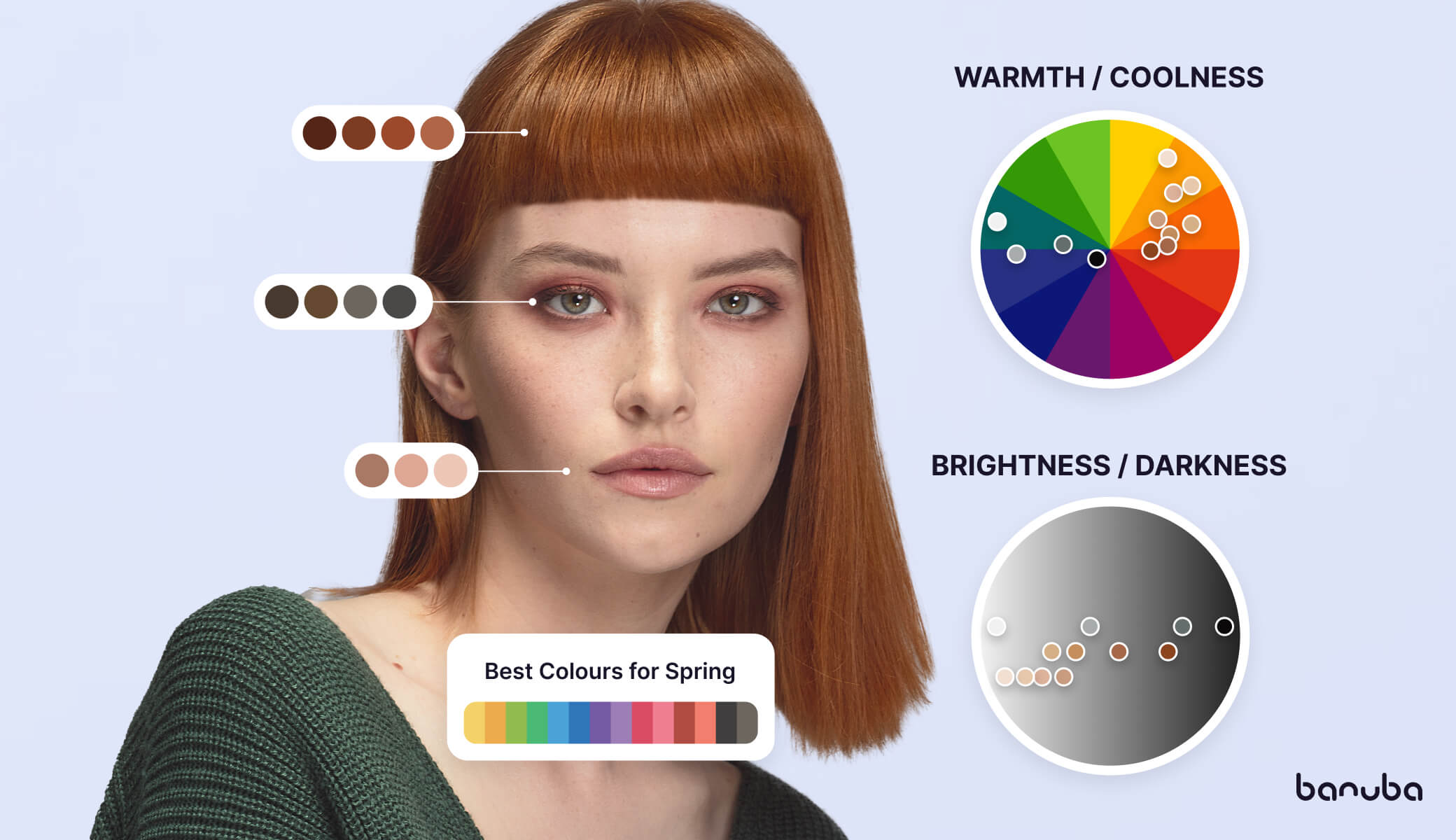Virtual Makeover Technology: Revolutionizing the Way Brands Sell Real-World Makeup

[navigation]
The Rise of Virtual Makeover Technology
Virtual make up technology has gained immense popularity in recent years, thanks to advances in smartphone technology and the increasing demand for personalized shopping experiences. Brands are leveraging this technology to provide users with the ability to virtually try on different makeup products, experiment with various looks, and make confident purchasing decisions.
Leading beauty brands such as Sephora, L'Oreal Paris, and CoverGirl have embraced Augmented makeover technology and integrated it into their apps and websites. These brands understand the importance of engaging with customers in a new and interactive way, and a virtual try-on allows them to do just that. These apps typically utilize facial recognition technology to map a user's facial features and provide them with a realistic virtual makeup experience. Users can try on different cosmetics from various brands, customize their looks, and even access beauty tutorials to learn new techniques.
Enhancing the Customer Experience
The idea of trying make up on before buying via online channels has significantly enhanced the customer experience in the beauty industry. With this technology, customers can now try on makeup products without physically visiting a store. This convenience has transformed the way customers shop for makeup, allowing them to explore a wide range of products and experiment with different looks from anywhere in the world.
The ability to virtually try on makeup products has also reduced the uncertainty associated with online shopping. Customers can now see how a particular shade of lipstick or eyeshadow looks on their own face before making a purchase, eliminating the risk of buying products that may not suit their skin tone or preferences. This has resulted in increased customer satisfaction and reduced return rates for beauty brands.
AR makeover has added a social component to the shopping experience. Users can interact with each other through highly engaged communities, sharing their looks, tips, and experiences. This community-driven aspect fosters a sense of belonging and creates a supportive environment for beauty enthusiasts to connect and learn from each other.
Virtual Try-On in a Nutshell
Trying makeup using AR allows customers to customize their looks by adjusting colors, textures, and finishes according to their preferences. This level of personalization creates a unique and engaging experience, where customers can truly express their individuality and find products that align with their style.
Moreover, the implementation of virtual make up enables brands to gather valuable consumer behavior data. By tracking which products are being tried on, how they are being used, and which ones are being purchased, brands can gain insights into customer preferences and buying habits. This data can then be used to further personalize recommendations and create targeted marketing campaigns.
As the beauty industry continues to thrive in the digital landscape, brands are constantly seeking innovative ways to enhance the online shopping experience for their customers. One solution that has gained significant traction is the integration of virtual try-on technology. TINT, developed by Banuba, is one of the most advanced platforms in this space, offering a range of features that can revolutionize the way cosmetics are sold online.
TINT's AI recommendation engine by Banuba is a game-changer for online cosmetics sales. By analyzing facial features and color profiles, this advanced technology suggests the best cosmetics for each individual user. The combination of a personalized approach and accurate suggestions has been proven to significantly improve business metrics for brands using TINT.
One of the key features of TINT is its "complete look" try-on feature, which allows users to channel their inner makeup artist. With the ability to mix and match up to 9 products simultaneously, customers can experiment with different combinations without compromising on quality or performance.
TINT's try-on feature offers a realistic virtual experience, ensuring that the makeup looks exactly as it would on the user in reality. From foundation and lipstick to blush and eyeliner, TINT supports a wide range of cosmetics, each designed to provide an ultra-realistic try-on experience. The platform even allows users to try on multiple shades of the same product, making it easier than ever to create the perfect palette.
Personalized Recommendations and Accurate Representation
One of the key advantages of TINT is its ability to provide personalized recommendations based on AI seasonal color analysis. By considering each user's individual appearance and analyzing seasonal color trends, TINT ensures that customers receive tailored advice that suits their unique style.
It also has the ability to provide personalized experiences and tailored product recommendations. By leveraging intelligent algorithms, brands can analyze user data and preferences to offer personalized product suggestions. This not only saves customers time and effort in finding the right products but also increases the likelihood of conversion and customer satisfaction.
Furthermore, TINT's virtual try-on technology offers accurate and realistic product representation. With patented face tracking technology and precise facial feature detection, TINT ensures that the virtual makeup seamlessly aligns with the user's face, providing a lifelike and immersive experience.
In-Depth Look at TINT's Features
By leveraging Banuba's expertise in AI face segmentation and tracking, TINT's skin care effect feature precisely locates facial features and showcases the natural and organic disappearance of blemishes, wrinkles, and other skin issues. This realistic representation of the effects of skin care products provides customers with a unique and engaging interaction that cannot be achieved through traditional print or digital catalogs.
TINT recently introduced a groundbreaking feature that sets it apart from other virtual try-on platforms - the skin care effect. This feature allows users to visualize the short- and long-term impacts of non-decorative cosmetics usage.
Adding new products to TINT is quick and efficient, with the ability to digitize new items within 48 hours. This eliminates the need for physical samples and enables brands to rapidly expand their virtual cosmetics offerings.
Implementing TINT on your website or app is a seamless process. The platform is web-based, accessible from anywhere, and can be integrated in under two weeks. TINT also offers white labeling, allowing brands to fully customize the user interface and ensure a consistent brand experience.
The Benefits of TINT for Brands
Integrating TINT into your online cosmetics store offers a multitude of benefits. By providing customers with a user-friendly and interactive shopping experience, TINT can significantly increase conversion rates and average order values. Moreover, the platform's advanced AI technology ensures accurate recommendations and realistic product representation, leading to higher customer satisfaction and lower return rates.
TINT's fast implementation process and ability to quickly digitize new products make it a versatile solution for brands looking to stay ahead in the competitive beauty industry. With TINT, brands can keep up with evolving consumer preferences and deliver an exceptional online shopping experience.
The skin care effect feature also enables personalized product recommendations based on the user's skin condition. By considering individual skin concerns, TINT helps customers discover the most suitable non-decorative beauty products for their unique needs.
According to a recent study, companies that have implemented TINT's AI recommendations have experienced over 200% better conversion rates, up to 60% lower return rates, and up to 30% higher average order values. These impressive results highlight the effectiveness of TINT in driving sales and enhancing customer satisfaction.
Boosting Online Sales and Brand Loyalty
AR makeup has proven to be a powerful tool for boosting online sales and building brand loyalty. By providing customers with a realistic and immersive virtual experience, brands can instill confidence in their products and increase conversion rates.
Customers who have tried on products using online tools are more likely to make a purchase as they have already visualized how the product will look on them. This reduces the hesitation and uncertainty that often accompanies online shopping, ultimately leading to higher sales for beauty brands.
Furthermore, augmented makeover technology allows brands to engage with their customers on a deeper level, fostering brand loyalty and advocacy. Customers who have had positive experiences are more likely to become brand ambassadors, sharing their looks and experiences with their followers on social media. This word-of-mouth marketing can significantly amplify brand awareness and attract new customers.
The Future of Virtual Makeover Technology
As technology continues to advance, virtual styling technology is poised to make even greater strides in the beauty industry. Brands are constantly innovating and exploring new possibilities to enhance the virtual makeover experience and provide even more realistic and interactive features.
One exciting development is the integration of artificial intelligence (AI) and machine learning. This enables the technology to learn from user interactions and adapt to individual preferences over time. AI-powered virtual makeover tools can offer more accurate shade matching, personalized product recommendations, and even provide real-time beauty advice based on facial features and skin concerns.
Moreover, the integration of augmented reality (AR) and virtual reality (VR) to broaden the use of make up online is on the horizon. This will allow users to experience makeup looks and tutorials in a more immersive and realistic way, further blurring the lines between the virtual and real world.
The use of AR in this sense has transformed the way beauty brands sell real-world makeup. It has provided customers with convenient and personalized shopping experiences, enhanced online sales, reduced return rates, and boosted brand loyalty.In today's digital age, virtual try-on technology has become a must-have for cosmetics brands. TINT, developed by Banuba, offers a comprehensive suite of features that empower brands to boost online sales and enhance customer engagement. From AI recommendations and complete look try-ons to realistic skin care effects, TINT is at the forefront of the virtual try-on revolution.
Conclusion
As technology continues to evolve, we can expect brand implementation to become even more sophisticated and integral to the beauty industry. Brands that embrace this technology and provide innovative virtual makeover experiences will have a competitive edge, attracting and retaining customers in this ever-evolving digital landscape. By leveraging TINT's cutting-edge technology and seamless integration capabilities, brands can provide their customers with a personalized and immersive shopping experience. With TINT, online cosmetics store can thrive in the digital landscape and stay one step ahead of the competition.





